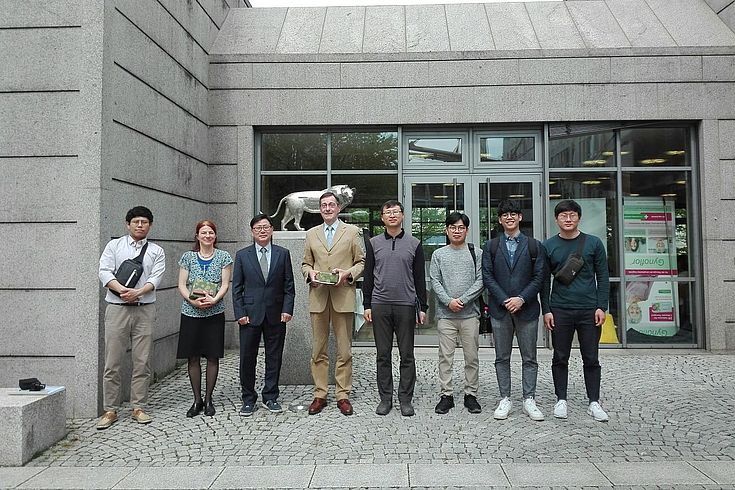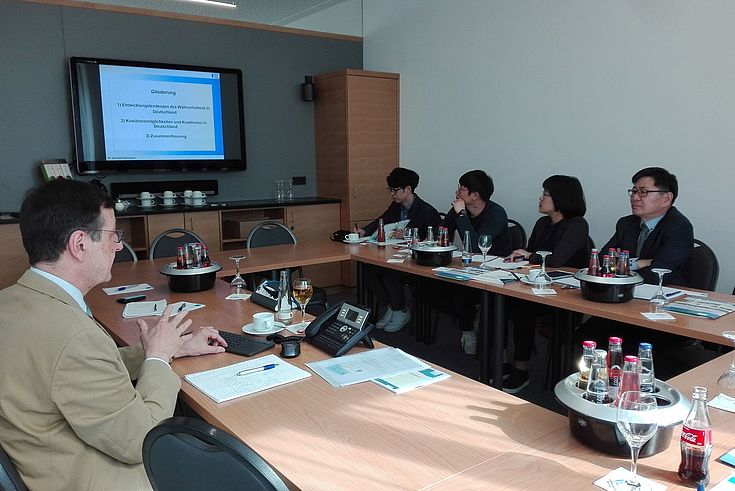Delegation from Gyeonggi Visits HSS Headquarters
German-Korean Exchange on Coalition Building
A delegation from the division of coalition work of Gyeonggi Provincial Government, led by department head Kim Neungsik, visited the Hanns Seidel Foundation on April 23 in Munich and informed itself on the topic "Coalition formation in Germany and Bavaria". Dr. Hirscher, a consultant on the fundamentals of democracy, party development and election research at the Academy for Politics and Current Affairs of the HSS, offered in his lecture an overview of the development of coalition formations at federal and state level since the beginning of the Federal Republic of Germany. As a parliamentary democracy, almost every formation of a government is based on a coalition between parties from parliament. So far, this model does not exist in South Korea as a presidential democracy, neither at national- or provincial level.
However, the present Governor of the Gyeonggi Conservative Party, Nam Kyung-Pil, has made in his current term the unique attempt for South Korea to form a coalition between his conservative party and the opposition party at the working level, so that the opinion of its constituents and members can be taken into account. A representative of the oppositional, democratic party became vice-governor. As a result of this involvement of the opposition, two coalition agreements have been drafted, which should be largely implemented by the government.
Since a new governor is elected in Gyeonggi Province in mid-June, one of the delegation's concerns was how to deal with the plans for a coalition agreement in Germany after the end of a ruling coalition. Dr. Hirscher pointed out the difference between coalition agreements and legislation: although a new government would not accept the coalition agreement of the previous government, it would be bound by the decisions of the previous government. To overturn a law passed is a lengthy process in Germany, so that decisions of coalitions often have long-term effects.


